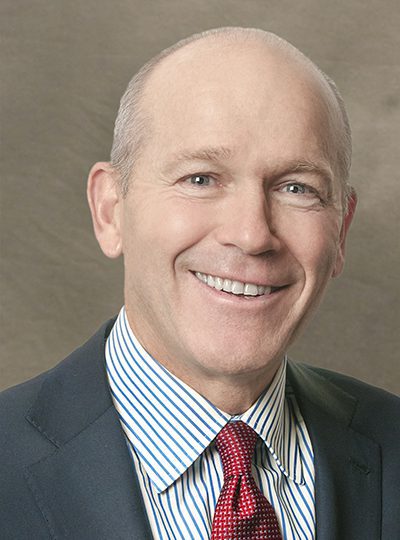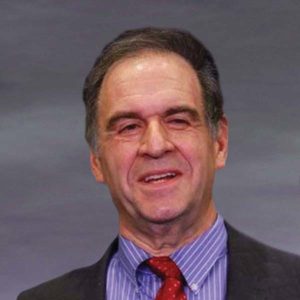
In search of messianic simplicities, some media pundits and financial analysts have wrongly questioned whether former Boeing board chair David Calhoun is the right person for the top job at Boeing. Instead, they’ve called for a changing of the guard at the top and a clearing of the deck regarding the board.
This advice could not be more wrong, and no one at the company should heed it.
When there is demonstrated fraud and gross misconduct, such change is paramount. But when there are setbacks, smart, knowledgeable insiders are the right saviors. The adage “new brooms sweep clean” is widely misunderstood. In fact, the actual Jamaican proverb reads “New brooms sweep clean but old brooms know the corners.”
Knowing Boeing’s corners is essential now. The 737 Max disasters weigh heavily on the reputation of the company, its internal morale—and its ability to sell its equipment in the global marketplace. Believing the planes to be safe, management did not, at first, see the connection between the two crashes. Furthermore, Boeing was forbidden by international disaster protocol to provide public comment as information dribbled out until the global regulatory authorities completed their crash investigations. A further cloud was created when disturbing internal messages were shared with the Department of Justice but not the FAA and Congress in a timely manner, in keeping with expectations the DOJ had about their own criminal investigations then underway.
Then, believing they addressed the key technical problems, and under pressure from worried air carrier and financial markets, Boeing provided what turned out to be unrealistically optimistic projections about when the FAA and regulators would clear them. This appeared presumptuous, angering regulators and frustrating the planning of air carriers suffering from lost capacity.
Investigations have shown that host of issues bedeviled the 737 Max, from software glitches to a lack of external sensor redundancy to a missing “disagree alert” on the cockpit’s instrument panel. And while Boeing’s test pilots believed that the traditional experienced base of pilots could handle a new, more complex automatic pilot system in a stall situation caused by bad signals, the global pilot shortage was putting far younger, less experienced pilots and captains in cockpits which suggests far more intensive training on these systems with simulator time.
But there is no indication so far that these unfortunate calls were due to the evil of greed, as has been suggested by some critics. Some tragedies happen without villains. Clearly a recently-released cache of cynical emails from traditionally macho test pilots who mocked air carrier inquiries about needed simulator training and FAA regulatory intrusion is disturbing. These messages suggest a culture where a cynical, reckless spirit exists in pockets. But that’s not evidence of managerial corruption or deception. The cure is to realign the organization to again be an enterprise revered for safety and engineering precision.
JP Morgan Chase’s ups and downs offer a useful parallel example. CEO Jamie Dimon, his management team and his board uniquely anticipated the 2008–2009 global financial crisis and shouted an alert over the wide mispricing of risk as a crisis far beyond real estate markets alone, as regulators, analysts, and peer banks presumed. To the ridicule of “experts,” Dimon led a brilliant, preemptive reworking of their balance sheet.
Such prescience didn’t keep the same board and management from getting caught in the “London Whale” trading fiasco, where a trader was wrongly given permission to take overly-risky bets. Initially Dimon and the board miss-assessed losses at less $2 billion and characterized the episode as “a tempest in a teapot.” They were wrong—it ballooned to $9 billion, plus massive penalties. But there was no fraud or deceit. Just mistakes. They got it right in 2007 and wrong in 2011.
To change things out and fire the CEO and board would have been the exact wrong thing to do—they were the best equipped players to repair the mistakes. A year later, JP Morgan was again the world’s most admired and successful bank, and Dimon was considered Wall Street’s most-trusted voice.
This is consistent with the current academic research from Harvard, Yale, Northwestern, and Wharton on inside/outside successions. For every Lou Gerstner parachuting into IBM to save the day, you can point to two or three fiascos, false messiahs such as Ron Johnson at JC Penney and Carly Fiorina of HP.
Don’t get me wrong. When there is fraud or gross mismanagement, that’s different. In cases like Dennis Kozlowski, Bernie Ebbers, Richard Scrushy, Ken Lay, Jeff Skilling, Travis Kalanick, Adam Neumann and Elizabeth Holmes, the management was rotten and the boards were negligent if not corrupt as well. They needed to go.
But Boeing is not suffering from those problems, and the new leadership team appears to be the right move by the board. David Calhoun is supremely competent: Smart, humble, eloquent, a good listener who grasps big picture. He has been transparent and convincing in media interviews without being defensive (I recommended that he accompany past leadership in Congressional testimony when he was board chair, but they took a technical path instead with the company’s chief engineer). Calhoun knows how to talk with regulators, Congress, air carriers, the flying public, investors and other key constituencies. All of which will serve him well.
His track record as a leader is equally encouraging. At GE Infrastructure he led mass-scale manufacturing, with 60,000 employees. He has led engineers and manufacturing at OEMs very successfully. As CEO of Neilson he was effective and trusted, with great relations with financial community. As chairman of Caterpillar, he profoundly helped the new CEO reposition the firm in global markets like China while addressing regulatory concerns.
Most important: He did not seek the job of Boeing CEO. He did not undermine the past leadership at the company to satisfy any unsatisfied career ambitions (as we have seen in past years at GM, Citigroup, and elsewhere). He is not one of those “young” retirees on a board looking to regain lost glamour and the spotlight. Calhoun’s path more parallels the heroic role of beloved former HP CEO Lew Platt, who stepped in as Boeing’s non-executive chairman to stabilize the company after Phil Condit’s troubled exit as CEO.
Furthermore, Calhoun’s leadership is not a solo flight, but part of a great team. Succeeding him as chairman is Larry Kellner, who has excellent relations with air carriers as the former CEO of Continental. Kellner can fortify these vital, but now fragile, relations with customers, freeing up Calhoun to work with external regulators, internal engineers and manufacturing officials. Another priceless asset is CFO Greg Smith, who is not only a terrific CFO but has been a key strategic partner with the board and a respected culture carrier within the organization—as well as a credible longer-term CEO candidate.
Already Calhoun has moved with greater transparency. Through document releases and his call for far more simulator training he’s shown a needed change in course for Boeing. Yes, Calhoun has many simultaneous priorities, but his appointment will help Boeing get its planes back up in the air—and get the company back on track.







